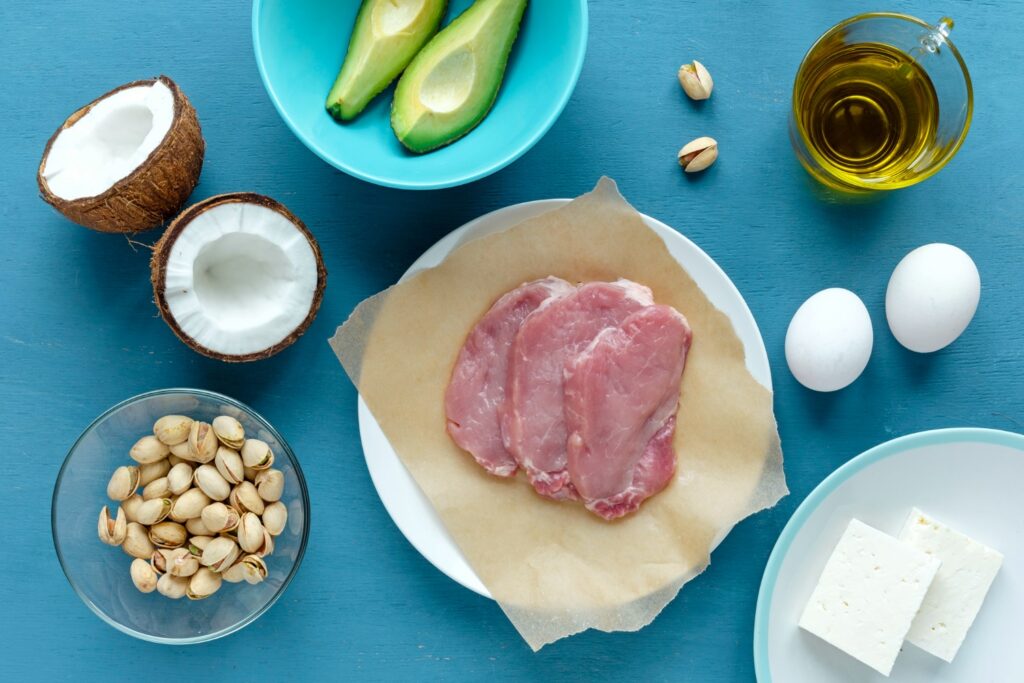Why Allulose Might Be the Best Sweetener on a Ketogenic Diet

As the popularity of ketogenic diets continues to rise, so does the search for suitable sweeteners that align with the low-carb, high-fat principles of this eating plan. Allulose, a relatively new player in the world of sugar substitutes, has emerged as a promising option for those looking to satisfy their sweet tooth without derailing their dietary goals. But what makes allulose stand out from other sweeteners, and what do the latest studies say about its benefits? Let’s delve into the details.
What is Allulose?
Allulose is a rare sugar found in small quantities in certain fruits like figs and raisins. Chemically, it is classified as a monosaccharide (simple sugar), similar to fructose. However, allulose has garnered attention for its unique properties: it contains significantly fewer calories (about 0.2 calories per gram) compared to regular sugar, and it has minimal impact on blood glucose levels.
Why Allulose is Ideal for a Ketogenic Diet
- Low-Calorie Content: One of the primary reasons allulose is favored on a ketogenic diet is its low-calorie content. Unlike traditional sugar, which contains approximately 4 calories per gram, allulose provides a negligible caloric contribution, making it an excellent choice for those monitoring their calorie intake while trying to achieve or maintain ketosis.
- Minimal Glycemic Impact: Allulose does not spike blood sugar or insulin levels, which is crucial for individuals on a ketogenic diet. Studies have shown that allulose has a low glycemic index (GI) and does not significantly affect glucose metabolism, allowing individuals to enjoy sweet flavors without the risk of leaving ketosis.
- Taste and Texture: Allulose closely mimics the taste and texture of regular sugar, making it an appealing alternative for baking and cooking. It caramelizes like sugar and can be used in various recipes, from desserts to sauces, without the chemical aftertaste often associated with artificial sweeteners.
- Potential Health Benefits: Recent studies suggest that allulose may offer additional health benefits beyond being a low-calorie sweetener. Research published in the journal Nutrients indicates that allulose can help reduce body fat, improve insulin sensitivity, and lower triglyceride levels. In one study, participants who consumed allulose as part of their diet experienced significant reductions in fat mass compared to those who did not.
- Digestive Tolerance: Unlike some sugar alcohols (like xylitol or sorbitol), which can cause gastrointestinal discomfort, allulose is generally well-tolerated in moderate amounts. Studies have shown that it is absorbed by the body but not fully metabolized, leading to fewer digestive issues for most people.
Recent Studies on Allulose
- Weight Management and Fat Loss: A study published in The Journal of Nutrition investigated the effects of allulose on body weight and fat loss. Researchers found that participants who included allulose in their diet showed significant reductions in body weight and fat mass compared to the control group, highlighting its potential role in weight management.
- Insulin Sensitivity: Another recent study in Frontiers in Nutrition examined the effects of allulose on insulin sensitivity in individuals with obesity. The results indicated that regular consumption of allulose improved insulin sensitivity and lipid profiles, suggesting that it could be beneficial for those at risk of metabolic disorders.
- Postprandial Blood Glucose Levels: A clinical trial featured in The American Journal of Clinical Nutrition demonstrated that consuming allulose with a high-carbohydrate meal significantly blunted the postprandial (after meal) blood glucose response, supporting its use as a sweetener that can aid in glycemic control.
Comparison with Other Sweeteners
While other popular sweeteners like erythritol, stevia, and sucralose have their benefits, allulose offers a unique combination of advantages:
- Erythritol: Though low in calories and low-GI, erythritol can cause digestive issues in some people and has a cooling effect that may not be desirable in all recipes.
- Stevia: A natural sweetener with zero calories, stevia can sometimes have a bitter aftertaste and may not provide the same bulk or texture in baking as allulose.
- Sucralose: While sucralose is calorie-free, it has been linked to negative effects on gut health in some studies, raising concerns for long-term use.
Conclusion
Allulose appears to be a game-changer for those following a ketogenic diet. With its low-calorie content, minimal glycemic impact, and potential health benefits, it offers a sweet alternative that can enhance the enjoyment of various dishes without compromising dietary goals. As more studies emerge, allulose may solidify its reputation as one of the best sweeteners for those committed to a low-carb lifestyle. Whether you’re baking a low-carb dessert or sweetening your morning coffee, allulose could be the perfect choice to satisfy your sweet cravings while staying true to your ketogenic principles.